Coronavirus disrupted encounter-to-encounter get in touch with and forced firms to trim their expenditures, but it has also strengthened numerous employers’ dedication to schooling for a broader variety of their middle and senior supervisors.
From a self-selective poll organised by the FT, more than a quarter of chief finding out officers (CLOs) all over the globe mentioned they intended to improve their budgets for govt instruction in 2021, though around half mentioned they would keep paying at 2020 concentrations. Just 17 for each cent prepared a reduction.
The conclusions arrive from a pioneering study carried out by the FT in partnership with Unicon, the intercontinental consortium for college-primarily based govt instruction, along with the Association to Progress Collegiate Educational institutions of Organization and the European Basis for Administration Development — the two leading accreditation organizations — as very well as the Society for Human Resource Administration.
Of the 363 respondents surveyed in February and early March 2021, the greater part labored for firms primarily based in the US and Canada, but Europe, Latin The us, the Center East and Africa ended up also very well represented. Respondents labored in organisations of a variety of dimensions: more than two-fifths oversaw workforces of fewer than one,000 people and more than a fifth ended up responsible for schooling in teams with more than 20,000 personnel. Respondents from finance, banking, healthcare and industrial organizations dominated.
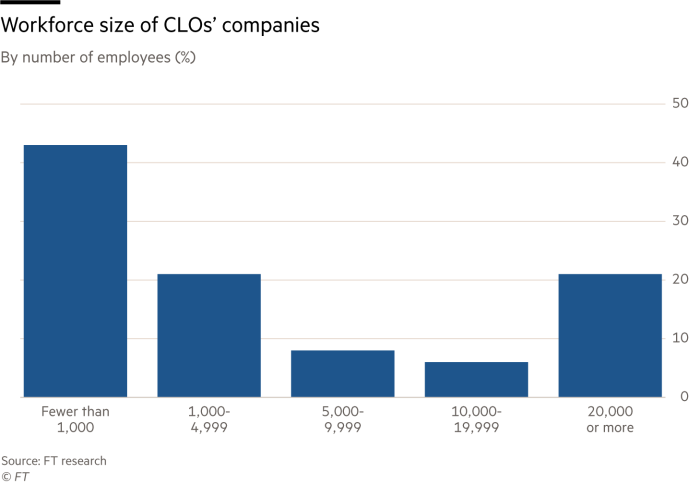
A lot more than two-fifths of CLOs ended up from firms with below one,000 personnel, with finance, banking, healthcare and industrial organizations dominating.
Planned finances will increase for the duration of 2021 ended up finest for firms in Latin The us and Asia-Pacific, adopted by the US and Canada, then the Center East and Africa. Individuals in Europe ended up the least probable to foresee development in paying on schooling, but however more predicted to improve than decrease expenditures this year. Overall, the ordinary predicted improve was seventy three for each cent.
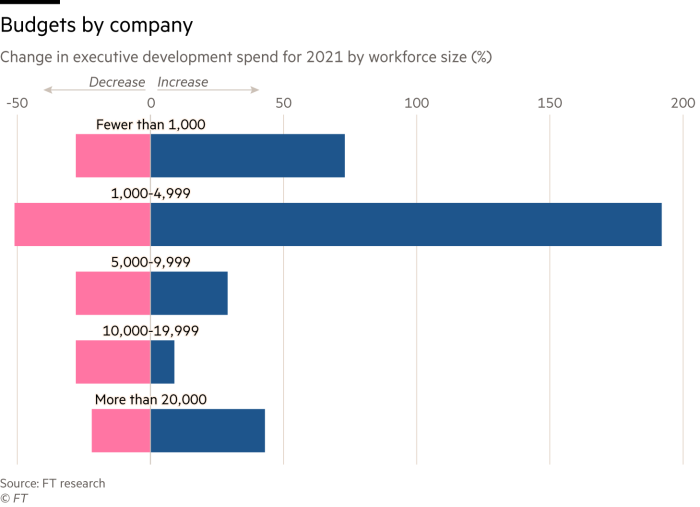
Organizations with one,000-four,999 personnel claimed the finest predicted adjust in govt schooling expenditure for 2021.
Management was the prime finding out priority recognized for govt instruction, cited as vital by eighty two for each cent of respondents. Change administration adopted, at fifty seven for each cent. Other longstanding priorities, like digital transformation, system and innovation, ended up also rated highly by more than two-fifths of respondents. In a sign of the concerns brought to the fore for the duration of the pandemic, the need to have for schooling all over resilience, wellbeing and remote or on the net collaboration ended up also cited by numerous.
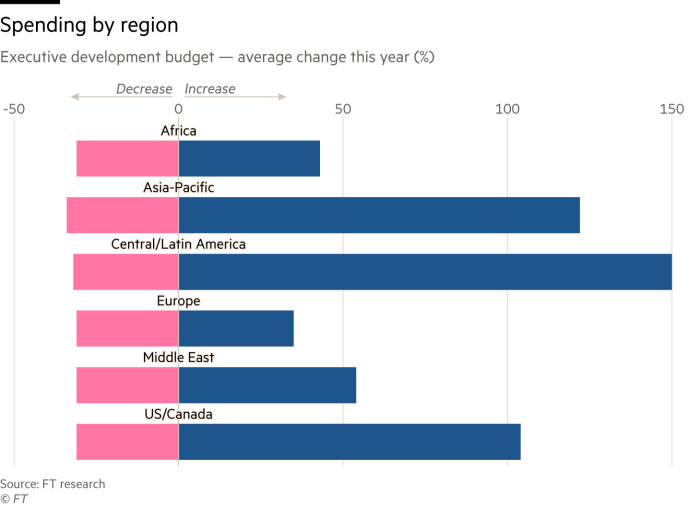
Overall, eighty three for each cent of chief finding out officers surveyed mentioned they prepared to keep or improve their schooling budgets globally for 2021.
A further rising theme — variety and inclusion — was a substantial priority, cited by fifty five for each cent, placing it 3rd all round. Among the US respondents, it was continue to greater — in second position soon after leadership. That reflects the growing target on a subject matter that has mobilised senior managements in new months, triggered partly by the killing of George Floyd very last Might and the Black Life Subject movement.
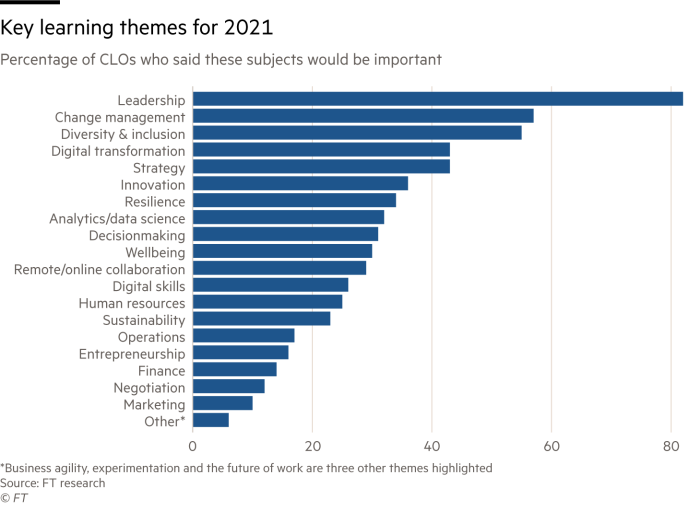
Management, adjust administration, variety and inclusion and digital transformation are among the the prime priorities to emerge in the pandemic.
Organization educational institutions can choose some ease and comfort from the fact that just around half of the CLOs surveyed mentioned they would switch to universities for the duration of 2021 for their govt finding out programmes. On the other hand, a larger sized proportion pointed to choices: more than two-thirds mentioned they would use inside assets and practically three-quarters prepared to use non-college schooling companions.
When CLOs ended up asked to think about the most vital traits of schooling organisations with which they would function, they judged analysis-primarily based and empirical awareness — one energy of business educational institutions — to be of very little importance. They as an alternative placed the finest emphasis on the price of customisation and an means to display return on investment. Chopping-edge awareness and a robust on the net system ended up also highly rated.
“People want a little something that targets their need to have, rather than fascinating insights,” mentioned one CLO. “They want shorter, sharp and partaking moments of advancement (prolonged keynotes and time invested passively listening are OUT).” A further mentioned: “Virtual finding out has to be participative and to the issue, with learners ready to deliver and function on true, present problems with outlined, price-additional takeaways.”
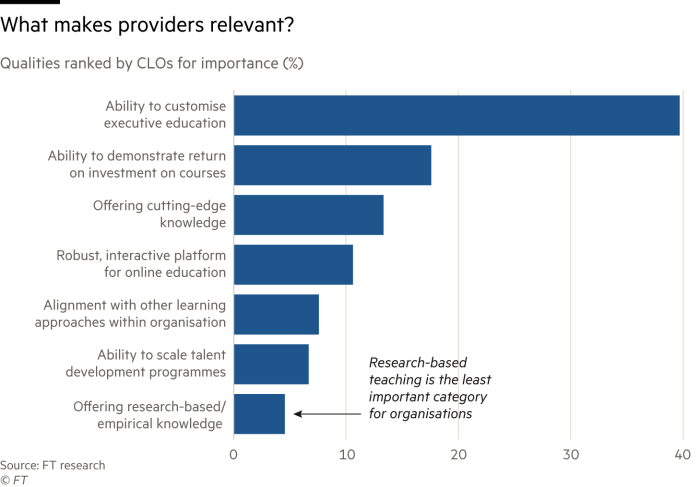
Customisation and return on investment ended up rated greater than classic business school strengths in analysis-primarily based and empirical awareness.
Many CLOs saw a trend in the direction of discovering new and more powerful methods to evaluate the price of schooling, with individuals citing a shift from annually to quarterly evaluations, conducting “360” assessments, and working with surveys before and soon after courses. They pressured the need to have for ever better alignment involving programmes available and the strategic aims of their organisation, and for “learning transfer” from individuals to other personnel.
Just one respondent talked about “actionable growth”. A further mentioned: “We will be wanting for venture- or performance-primarily based results instantly tied to participation in govt instruction.” A 3rd mentioned long run schooling programmes would be assessed to “more strictly evaluate and align with the means to execute and put into action a project”.
Main finding out officers ended up crystal clear that the hasty swap to on the net finding out triggered by Covid-19 lockdowns in 2020 experienced not been fascinating, with the vast greater part saying in-particular person finding out was much better. On the other hand, they ended up also sensible about the long run: most predicted a blend of actual physical and digital finding out would be the “new normal”.
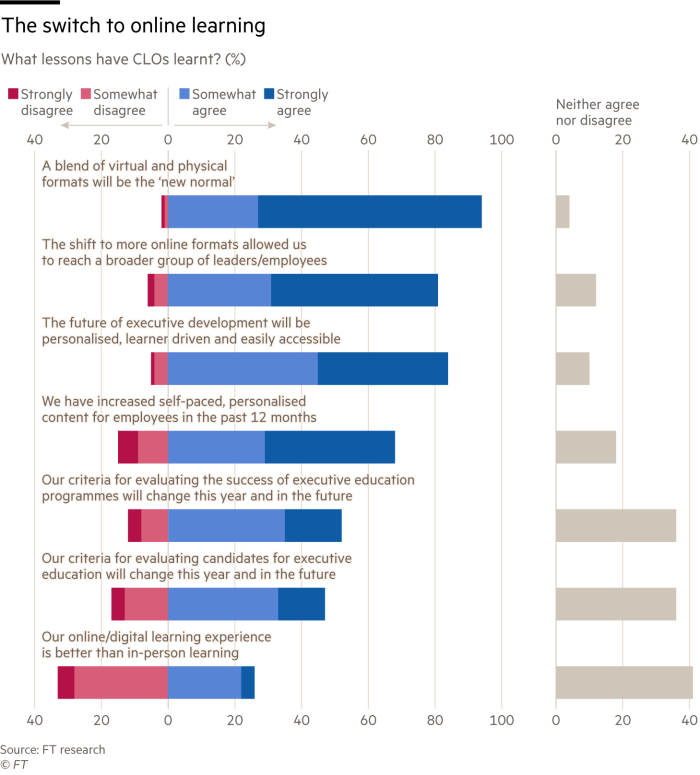
Very last year an enforced go to on the net finding out. Although CLOs favor in-particular person training, the shift brought positive aspects these types of as elevated adaptability.
A lot more positively, four-fifths agreed or strongly agreed that digital delivery experienced elevated adaptability and accessibility to finding out, allowing for firms to arrive at a broader group of leaders and personnel. These views ended up notably solid among the firms primarily based in Africa and the Center East, and for larger sized employers with workforces of 20,000-as well as.
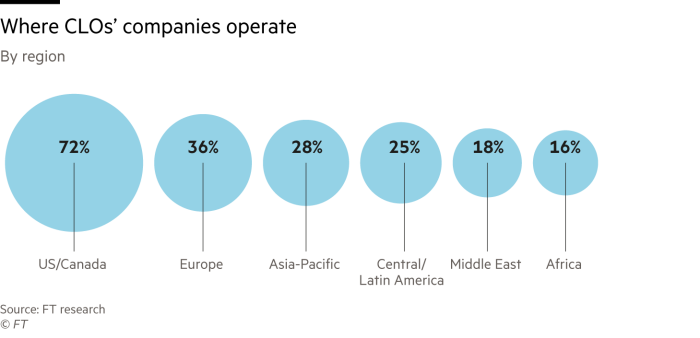
Practically three quarters of surveyed chief finding out officers’ firms operated in north The us.
Quite a few CLOs mentioned they predicted a renewed target on govt instruction, to fulfill a increasing need to have for new expertise, succession arranging and acquiring methods to discover candidates for promotion. “We are relocating from seniority-primarily based to ability-primarily based,” mentioned one. Others cited a unique determination for growing schooling that emerged for the duration of the pandemic: to motivate and retain crucial personnel.
Practically two-fifths mentioned digital finding out experienced elevated the provision of self-paced and personalised articles. Quite a few cited the use of gamification and growing fascination in on-demand schooling assets, “micro-learning” in little models and bite-sized video clip formats. Other respondents mentioned there was growing demand for co-operation and shared finding out with competitors and corporate universities, though three-fifths mentioned assessment and accreditation ended up very or pretty vital in programmes.
Overall, sixty two for each cent of respondents predicted new designs of collaboration all over finding out, providing scope for innovation and intensified activity by business educational institutions and other providers. But tricky negotiations lie ahead to deliver what CLOs seek out. As one mentioned: “[Almost] every little thing we’ve identified is way too fluffy, lacks true globe articles and depth, and has presented virtually zero return on investment.”
Info by Sam Stephens graphics by Chris Campbell









More Stories
How to Prevent Workplace Bullying in Your Business
You Probably Don’t Need a New Website
No sales pitch required – The Joy of Business